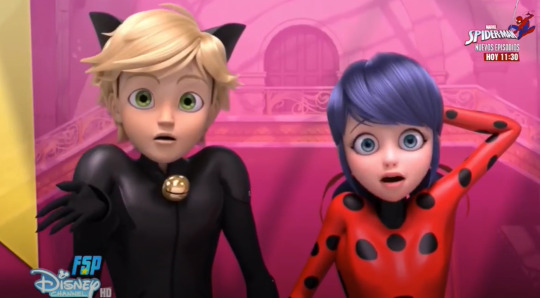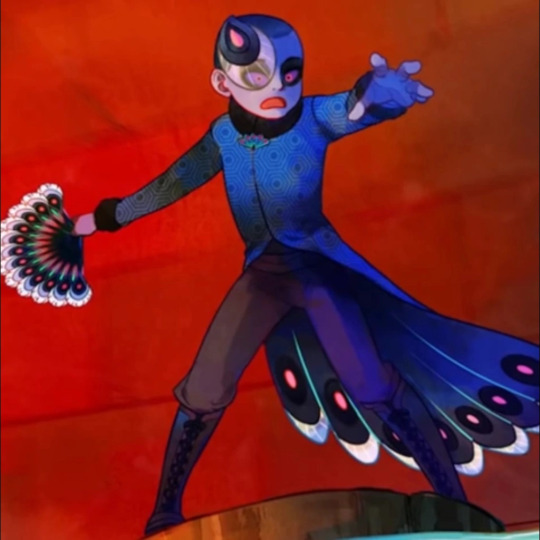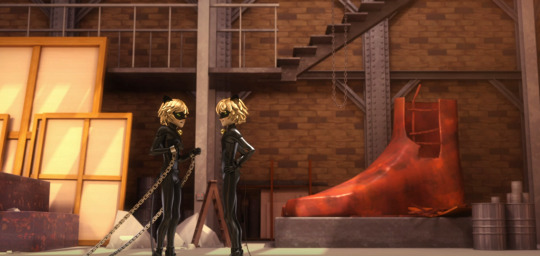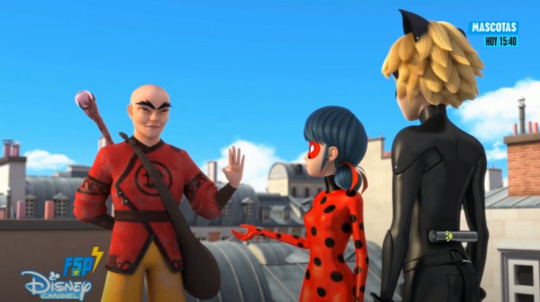#implying that a robot that DOESN'T lie to you but is otherwise identical would be fine
Explore tagged Tumblr posts
Text
So I'm seeing this post doing the rounds and some of the tags struck me as not really understanding what AI is or what it does, and therefore bringing the correct energy - frustration at AI and how overused it currently is - but for the wrong reasons. I'm a CS student who's built neural networks as part of my coursework, and I'm sure I've got some stuff wrong (please correct me if I did), but in broad strokes:
Snapchat's AI is not lying to you deliberately or maliciously. When you ask it "do you know my location data" and it tells you "no but I know your IP address" it's not telling you that because it's trying to hide that it knows your location, it's telling you that because AI chatbots are fancy text prediction tools, and in the bot's training data the most common response to "do you know my location" is "no but I know your IP address"
AI text prediction is a black box, and it's difficult to put manual overrides in. If snapchat has your location data, it's probably because you consented to share it with the app (for snap map or similar) and there's no reason for them to hide that. The bot isn't lying to you because snapchat told it to, it's lying to you because it has no concept of truth. Chatbots can't differentiate between true and false information, they can only tell you what word is most likely to come next, given a series of preceding words.
There are a lot of problems with AI, especially generative AI. It's being overapplied in a tonne of industries, to the detriment of working artists and writers, and to the detriment of the art being produced and published at the moment. They're being pushed on us by companies everywhere, which is largely really annoying. The energy costs to train them are massive, and they're usually powered by fossil fuels, so your chatbot has a bigger carbon footprint than you'd expect. They need immense amounts of training data, and the people sourcing that data aren't scrupulous about where they find it, so they're typically (by necessity & design) built off thousands of unconsenting people's intellectual property. They're basically black boxes, so if a response comes back that's unexpected, even the people who built them often have no idea how that happened - if an AI causes harm it's very difficult to hold it or the people behind it truly accountable. They're often confidently, believably wrong (because they have no concept of what truth is) which means people trust the answers it gives far more than they should. The datasets are often refined by people paid next to nothing in the developing world.
I just think we should be careful about anthropomorphising AI and getting angry at the AI itself, rather than the people who built it. The AI is not malicious, it's your phone's autocorrect on steroids, and if we come after the chatbots for lying we divert energy away from protesting the plagiarism, carbon footprint, and job theft that AI requires and facilitates. The snapchat chatbot isn't bad because it sometimes tells you incorrect things, it's bad because the processes required to train it are harmful.
So to summarise:
What AI is:
A waste of resources and a disproportionately large CO2 producer due to the large power demand of training complex neural nets
Built off the theft of thousands of people's intellectual property
Undermining the jobs of working artists and writers
Frequently incorrect, and not a replacement for real research
What AI is not:
A person
Capable of thought
Actively and deliberately lying to you to further some nefarious goal
#chats#AI#like don't get me wrong! AI is bad! it's bad for art and it's bad for the soul and I hate that it's everywhere#but protest the right stuff#getting angry at snapchat's AI for lying is telling snapchat “improve your AI so it stops lying”#rather than “stop making AI because it's fundamentally incompatible with an ethical business model”#people going “oh fuck the robot is lying to me we live in a dystopia” are calling the end result bad and not the process that made it#implying that a robot that DOESN'T lie to you but is otherwise identical would be fine#and that's not true! the robot lying is a problem but it's not the actual problem bc the actual problem is with the processes that made it#and the things it allows shitty exploitative executives to do
1 note
·
View note
Text
Part 4 - Basic Concepts of Miraculous Ladybug: Glamour
You can call it however you want: kid's show logic, superhero disguise logic, magical girl show logic, cartoon laws, suspension of disbelief, etc. But the fact that nobody recognises Marinette, Adrien and others when they are suited up IS NOT BAD WRITING. It's one of the main laws of this genre. That's not because characters are stupid, okay? So, being frustrated that everyone in the show acts stupid about this "wearing a mask that covers only eyes" trope is strange. This criticism is not valid or fair.

But, this trope has to make sense in-universe as a worldbuilding and narrative element.
Miraculous doesn't give us much direct information on how glamour works. And in this case, I think we need both SHOW and TELL. Because if you don't establish the glamour rules clearly, you are going to run into problems and create unfortunate implications with your storytelling choices.
Appearance
Miraculous obviously gives our heroes magical glamour. In "Lady WiFi" we find out that masks can't be taken off. It's magic. No other explanation is needed.
Miraculous can slightly change the appearance of users (eyes, face shape, height and hairstyles). People can identify and notice the hairstyles of heroes (numerous Ladybug wigs, statue in Copycat). Jagged Stone points out the change of hair when he mistakes Chloe for Ladybug ("Antibug"). But it's just a costume. There is no magic that prevents Jagged from understanding that Chloe isn't Ladybug. So, how does it work? But it's forgivable because it's cartoon logic. Suspension of disbelief works here, I suppose. I won't judge this too harshly.
Glamour also obviously prevents people from making a connection that Marinette and Ladybug have identical hairstyles. So people know that Ladybug wears her hair in pigtails, but magic does not allow them to notice similarities.
Another important question. Does glamour work on Kwamis? Can they see who is behind the mask?
New York Special makes it clear that magic does not affect robots and they can see through glamour. Does that mean that Markov, AI built by Max, knows the identities of Ladybug and Chat Noir? And it's never addressed.
Plagg in "Frightningale" says that holders can subconsciously choose their superhero appearance. This is actually pretty interesting and I like this idea a lot. Except the show is not consistent with this. The transformation of Master Fu looks identical to Nathalie's. And we have seen how different from each other Ladybug and Black Cat holders looked in the past. At the same time, Master Fu and Nino have different takes on Turtle superhero suit.


Age Glamour
Does age glamour exist? Do people see Ladybug, Chat Noir and other heroes as adults even when they look like teenagers to the audience (their height and build are smaller even when they are transformed)? Is that why no one ever questions the fact that children nearly die on a daily basis?
I mentioned unfortunate implications earlier. Well, this is where they come into play. Let's talk about "Copycat". A lot of people discussed it before me, so I won't bore you with details.

When I watched "Copycat" for the first time Theo's crush on Ladybug didn't bother me, because I thought that he sees Ladybug as his peer, a girl who is about 20-23 years old. Theo is an artist, his character design is that of an adult. He has his own studio, its appearance indicates that he did serious commissions in the past. The guy has no idea that Ladybug is like 13.

But then we get "Heroes' Day" and "Ladybug". And Hawkmoth calls them "kids", which means that there is no age glamour. Others see Ladybug and Chat Noir as teenagers. Perhaps, other Miraculous users aren't affected by age glamour. Therefore regular people see all heroes as adults but other heroes are able to guess their age more or less correctly. But you must spell this thing out because the audience can interpret "Copycat" differently. If there is no age glamour, then Theo is crushing on a teenage girl and he is fully aware of this fact. And this doesn't look good for your show.
The "No Age Glamour" theory is further confirmed in "Sapotis" where Alya just straight up analyses voice recordings and says that Ladybug is a girl their age. If glamour exists then it should also cover technology. Kwami can't be photographed. Face and voice recognition software shouldn't be able to analyse transformed superheroes and detect their identities in any way.
Besides, after "Sapotis" Alya should definitely be sure that Ladybug is not 5000 years old (also not an adult), especially after she wore Miraculous herself and was one door away from detransformed Ladybug.
SEASON 4 UPDATE! There's no age glamour after all.

In "Furious Fu" Su Han calls Chat Noir a child without knowing his identity. It means that everyone knows their superheroes are teenagers. "Copycat" can't be saved from that, uh, subtext anymore. No one questions the danger of their job or the balance of their lives outside of the mask. No one doubts their competence after "Origins" ever again. No one becomes annoyed after being bossed around by two teenagers in spandex. You had many opportunities to drop these details into the narrative. Someone could have been akumatized over this (I will not be ordered around by some magical kids!).
I don't know why writers decided not to use at least this idea and slightly adjust "Copycat" if they got rid of the age glamour completely. It can be explained as kid's show logic, but unfortunately, I'm reluctant to do it. If many characters sympathise with akuma victims on-screen, why not with the teenage superheroes who must fight them?
New York Special had this weird focus on collateral damage out of nowhere (the damage done by sentimonster Robostus) and yet it has 0 effect on the main story. No one in Paris is pissed that their 2 teenage protectors weren't there.
Ironically, "Furious Fu" and that one remark made by Su Han also created unfortunate implications for other moments in the show. Just hear me out. Apparently, Jagged Stone wrote a "thank you" song for Ladybug knowing that she is 13-15 year old child back in "Pixelator". Fandom is more than happy to roast Lila for lying about saving Jagged Stone's cat and him writing her a "thank you" song. Fandom claims that Lila's tale could harm Jagged's reputation, when he wrote a song for teenage Ladybug several weeks prior. Meanwhile, in-universe this lie is 100% believable.
If we put on "realism glasses", then both this whole song situation and Theo's crush in "Copycat" have uncomfortable implications. However, the show's canon can't be viewed and criticised through "realism glasses". I admit that bits and pieces of my criticisms are affected by these "glasses", but, ultimately, I'm trying to be fair and concentrate only on things that can't be justified by "cartoon logic and worldbuilding".
Could the existence of age glamour solve this problem of unfortunate implications and other concerns mentioned above? YES. Is it better for the narrative? YES. Is essential for the story? NOT QUITE. Could the absence of age glamour be called an irredeemable storytelling flaw? NO.
Disclaimer: On a side note, only older audience can notice these implications. Children, the target audience, most likely won't understand this subtext simply because they don't have enough experience. So, perhaps, this criticism is unfair, because these moments only look weird to me as an adult. It's like an adult joke in a cartoon that you don't get until you reach a certain age.
There's nothing technically wrong with adult writing a "thank you" song for a teenager. It's just an expression of gratitude. However, unfortunately, we live in a world, where adults normally wouldn't write songs for teens to express gratitude only. In real life similar actions would imply pedophilia and would be actively scorned by the public. No one would risk their reputation like that even if their intentions were genuinely pure and sincere. But this show can't be viewed through "realism glasses", because it's a cartoon and in certain cases we as the audience must use suspension of disbelief and pretend that certain things are possible for plot to happen.
Su Han also wants to give Ladybug and Black Cat to adults. Why didn't Master Fu do this then? Writers don't give us any explanation. Throughout the show we never question this up until the moment it's revealed that adults don't have time-limited powers. Then comes "Furious Fu". Story suddenly becomes self-aware here. Because apparently nothing prevented Fu from giving the most powerful Miraculous to adults who won't have time limit and will be more effective against Hawkmoth (see part 3 for more details).
I have a very good example of Age Glamour done right. It works in the story. There is no confusion or unfortunate implications. There is like one plothole connected to the glamour (it's been years and I still can't forgive them for Cornelia and Caleb) but otherwise, it's a pretty solid example of both show and tell. Clearly, writers wanted to avoid uncomfortable implications which are present in "Copycat". I am talking about W.I.T.C.H. comic books and animated series.
If you are not familiar with it, I'll give you a brief explanation. The story follows 5 girls, the Guardians of Kandrakar who are chosen to protect their world and parallel ones from evil. They receive magical powers from the amulet known as the Heart of Kandrakar. Their powers are based on elements: fire, water, earth, air and energy. Our main characters are about 13-15 years old. In the animated series they are younger and they attend middle school, making them 12-14 years old. But the transformation makes them look 18-20. They look like young women to each other and to other people. At the same time, people can recognise them, their looks and voice don't change. Most people don't know that they are really teenagers when they are not transformed and these people don't know that magic can make them look older. That's why everyone treats Guardians like adults when they are transformed. Comics establish this fact in the very beginning. In first issues characters state that they look older, we are also shown this multiple times.

In fact, one of the first side plots revolves around the fact that Irma uses her powers to sneak into the disco club to meet up with her crush. Irma is 13 at the beginning of the series, she is a high school freshman. Her crush, Andrew Hornby is a senior guy 17-18 years old. Irma has liked him for a long time and wants to impress him, so she decides to be clever about this. She transforms into her Guardian form of the 18-year-old girl, hides her wings, sneaks out to the club after her parents are asleep without any problem, and meets Andrew, who obviously doesn't recognise Irma in this girl who looks about his age. Smitten Andrew offers her a ride and 13-year-old Irma doesn't understand the implication of that offer, so she accepts. And, obviously, he decides that she is interested in more than just a ride home, since she agreed, and the comic implies that he fully intended for them to have sex in the backseat of his car. But Irma understands the implication only when Andrew tries to kiss her. She panics and turns him into a frog. And she actually pulls this "I need to look mature" trick more than once over the course of the series.
It's not the only situation where this age difference is handled well and makes sense. People who know the main characters in everyday life remark on their older appearance during transformation. Sometimes people flirt with Guardians when they are transformed. In one of the side-novels centred around Cornelia, she is worried that the prince of the realm they helped to save from famine would try to marry her. That never happens, but Cornelia actually brainstorms with her friends about how to tell the prince that she is really 15.
There are many other plot points where this happens, but I think that you got the idea. I really like how "Age Glamour" was handled in W.I.T.C.H.
How do we fix this? Create the situations where people offhandedly mention "Age Glamour" in the presence of Marinette or Adrien, use Kwami for this.
"Don't worry, dear. Chat Noir and Ladybug are adults, who know what they are doing. I am sure that they will handle this. "
Theo could say: "Oh, I wonder which university Ladybug goes to?"
"So, does that mean that other people see us as grown-ups, Tikki?"
A few words and boom, problem solved. Then allow the "show don't tell" rule do the rest.
#miraculous ladybug#ml#miraculous analysis#miraculous meta#ml meta#ml analysis#miraculous transformations#miraculous critical#miraculous ladybug critical#miraculous glamour#superhero glamour#miraculoustalesofladybugandcatnoir
67 notes
·
View notes